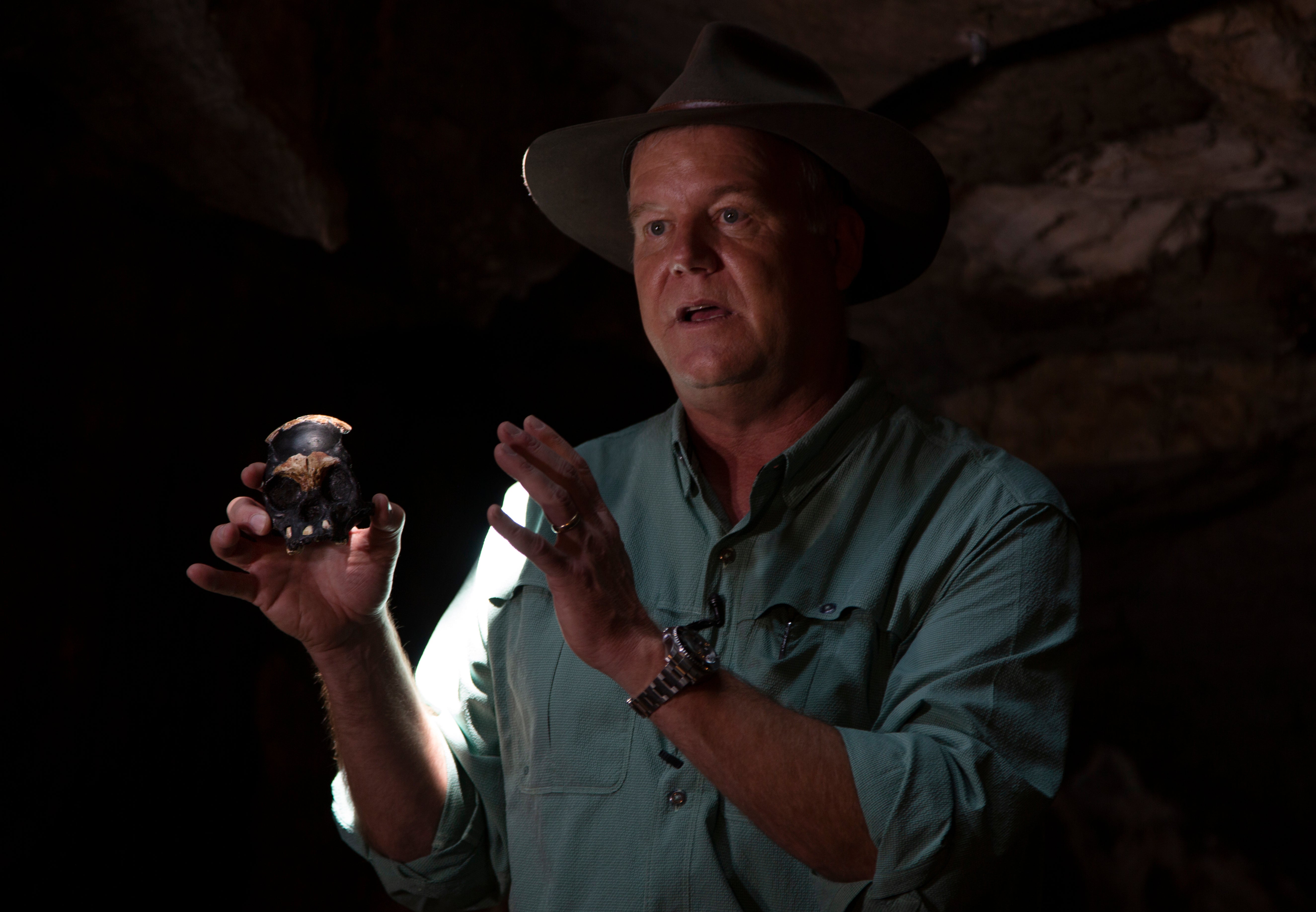Scientists find fossil of early hominid in South Africa
The fossil remains of an early hominid child have been discovered in a cave in South Africa by a team of international and South African researchers

Your support helps us to tell the story
From reproductive rights to climate change to Big Tech, The Independent is on the ground when the story is developing. Whether it's investigating the financials of Elon Musk's pro-Trump PAC or producing our latest documentary, 'The A Word', which shines a light on the American women fighting for reproductive rights, we know how important it is to parse out the facts from the messaging.
At such a critical moment in US history, we need reporters on the ground. Your donation allows us to keep sending journalists to speak to both sides of the story.
The Independent is trusted by Americans across the entire political spectrum. And unlike many other quality news outlets, we choose not to lock Americans out of our reporting and analysis with paywalls. We believe quality journalism should be available to everyone, paid for by those who can afford it.
Your support makes all the difference.The fossil remains of an early hominid child have been discovered in a cave in South Africa by a team of international and South African researchers.
The team announced the discovery of a partial skull and teeth of a Homo naledi child who died almost 250,000 years ago when it was approximately four to six years old. The remains were found in a remote part of the cave that suggests the body had been placed there on purpose, in what could be a kind of grave, said the announcement Thursday.
The placement “adds mystery as to how these many remains came to be in these remote, dark spaces of the Rising Star Cave system,” said Professor Guy Berger of the University of Witwatersrand in Johannesburg who led the team and made the announcement Thursday.
Homo naledi is a species of archaic human found in the Rising Star Cave, Cradle of Humankind, 50 kilometers (30 miles) northwest of Johannesburg. Homo naledi dates to the Middle Pleistocene era 335,000–236,000 years ago. The initial discovery, first publicly announced in 2015, comprises 1,550 specimens, representing 737 different elements, and at least 15 different individuals.
“Homo naledi remains one of the most enigmatic ancient human relatives ever discovered,” said Berger. “It is clearly a primitive species, existing at a time when previously we thought only modern humans were in Africa. Its very presence at that time and in this place complexifies our understanding of who did what first concerning the invention of complex stone tool cultures and even ritual practices.”
The new discovery is described in two papers in the journal, PaleoAnthropology.